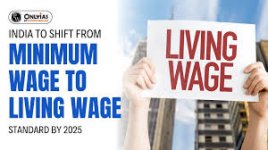The debate over whether the minimum wage should be raised to a living wage is one of the most hotly contested issues in modern economics and politics. At its core, this discussion is about fairness, dignity, and the right of every worker to earn enough to cover the basic costs of life — housing, food, healthcare, and transportation. But beyond the moral argument, there are powerful economic and social implications that make this topic both urgent and controversial.
A minimum wage is the lowest hourly pay that employers can legally offer. However, in many places, this wage falls dramatically short of what workers actually need to survive and support their families. Enter the concept of a living wage — a higher pay rate calculated to cover the actual cost of living in a specific region. Advocates argue that without this adjustment, millions of workers remain trapped in poverty despite holding full-time jobs, forced to rely on government assistance and charity just to get by.
Critics often argue that raising the minimum wage to a living wage could hurt small businesses, lead to job losses, or spark inflation. But recent studies challenge these fears, showing that moderate increases in wages often stimulate local economies as workers spend more on goods and services. Additionally, higher wages can reduce employee turnover, boost productivity, and improve overall quality of life. When workers earn enough to meet their basic needs, they become more engaged and healthier — benefits that ripple across communities.
On the other hand, opponents warn that a mandated living wage may lead to automation replacing low-skill jobs or create barriers for young and inexperienced workers trying to enter the workforce. The challenge is finding a balance between fair pay and economic viability. Governments and businesses must work together to create policies that protect vulnerable workers without stifling job creation.
Ultimately, the question is more than economics — it’s about the kind of society we want to build. Should full-time workers live in poverty? Or should a hard day’s work guarantee a decent standard of living? The answer will define the future of work, economic equality, and social justice.
The movement toward a living wage is gaining momentum worldwide, signaling a shift toward recognizing the inherent dignity of work. The fight continues — but the goal is clear: everyone deserves a wage they can live on, not just survive by.
A minimum wage is the lowest hourly pay that employers can legally offer. However, in many places, this wage falls dramatically short of what workers actually need to survive and support their families. Enter the concept of a living wage — a higher pay rate calculated to cover the actual cost of living in a specific region. Advocates argue that without this adjustment, millions of workers remain trapped in poverty despite holding full-time jobs, forced to rely on government assistance and charity just to get by.
Critics often argue that raising the minimum wage to a living wage could hurt small businesses, lead to job losses, or spark inflation. But recent studies challenge these fears, showing that moderate increases in wages often stimulate local economies as workers spend more on goods and services. Additionally, higher wages can reduce employee turnover, boost productivity, and improve overall quality of life. When workers earn enough to meet their basic needs, they become more engaged and healthier — benefits that ripple across communities.
On the other hand, opponents warn that a mandated living wage may lead to automation replacing low-skill jobs or create barriers for young and inexperienced workers trying to enter the workforce. The challenge is finding a balance between fair pay and economic viability. Governments and businesses must work together to create policies that protect vulnerable workers without stifling job creation.
Ultimately, the question is more than economics — it’s about the kind of society we want to build. Should full-time workers live in poverty? Or should a hard day’s work guarantee a decent standard of living? The answer will define the future of work, economic equality, and social justice.
The movement toward a living wage is gaining momentum worldwide, signaling a shift toward recognizing the inherent dignity of work. The fight continues — but the goal is clear: everyone deserves a wage they can live on, not just survive by.

